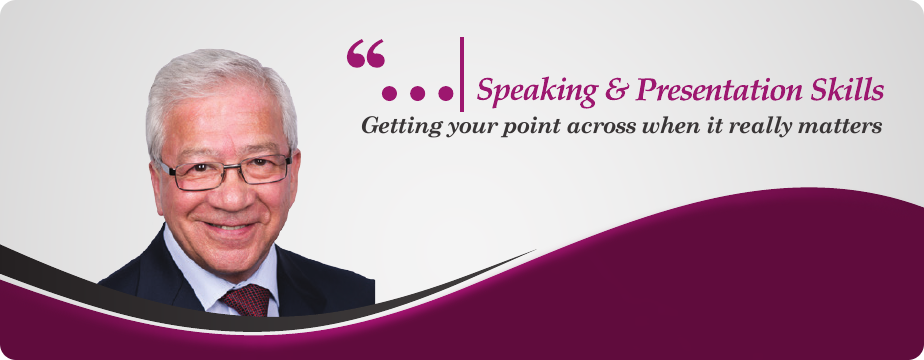Uncategorised
-
15 Top Tips on Public Speaking
It seems to me that the main reason why people get anxious about speaking in public is that they are not sure what is expected of them. Here are 15 tips to help dispel that anxiety by making sure you are well prepared.
These tips will help you feel confident that you know your stuff, and also that you know why and how it will be relevant to your audience.
Tip 1: Imagine you are speaking just to me and answer this question: What do you want me to know?
Tip 2: Why should I care about what you want me to know?
Tip 3: Why do I need to hear it from YOU? What’s your special connection with the message?
Tip 4: Would you pay to hear YOU speak?
Tip 5: Record your voice and ask yourself and some close friends if your voice is attractive.
Tip 6: What’s your reason for speaking? Money? Influence? Ego? Passion? Just be clear about it.
Tip 7: When you have credible answers to tips 1-6, write your Core Message (the ‘carry away’) in a single sentence.
Tip 8: Develop your message in 3 streams of argument or thought, e.g. Problem / Consequence / Solution.
Tip 9: Decide on your call to action. What do you want people to do when you have finished speaking?
Tip 10: Create an opening ‘Hook’ — something unexpected or dramatic that grabs attention right at the start.
Tip 11: Write out and learn your opening and closing paragraphs. Just use prompts for the rest, to sound more natural.
Tip 12: Decide on the ‘point of arrival’ or climax of your speech or presentation and build up the energy to that point.
Tip 13: Practise in front of a mirror or camcorder. Watch your gestures and body language.
Tip 14: When you are confident of your text, answer (aloud) the questions in Tips 1-3.
Tip 15: Unless you are in a speech contest, don’t try to give a world class performance. Just be sincere and passionate.
For more detailed help, go to www.pkpcommunicators.com or call 0845 165 9240Â Â Â (local rates).
Phillip
-
Tell to sell
Make a point, tell a story; tell a story, make a point. That’s an easy enough mantra to follow in speeches and presentations, but what kind of story should you tell?
The three factors that work in story telling are:
1. They illustrate the point and are easy to understand and remember
2. We are all conditioned, from childhood, to like stories
3. They can connect with your listeners’ backgroundsThe first two are fairly obvious, but the third one often surprises people when I raise it during my training courses. Backgrounds?
Let’s take an extreme example, just to make the point. Suppose you are pitching to the owner of a small business. Did you stop to consider why he started that business? One such small business owner told me, only the other day, “I started this business because no one would give me a job.”
Another (geeky) micro business owner told me his technical expertise is such that he is always in demand, and he doesn’t have to market himself.
For people like them, you may want to avoid stories about gregarious situations and talk, instead, about self sufficiency and the virtues of independence. Talk about the injustice of bureaucracy and the triumph of the ‘small’ over the ‘large’.
At the same time, be aware of your own background story, and avoid pleading your own position. Remember, the main purpose of the story is to advance your business case, not to entertain or to beat the drum of self interest.
Think about how movies can touch your own emotions. That’s the power of story telling.Go ye and do likewise
